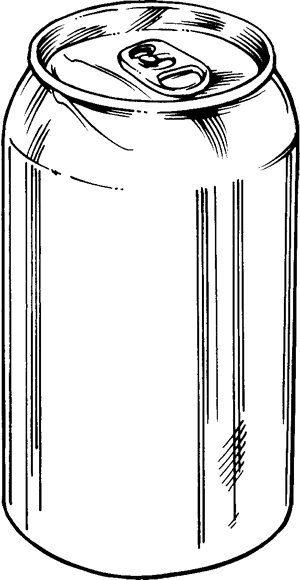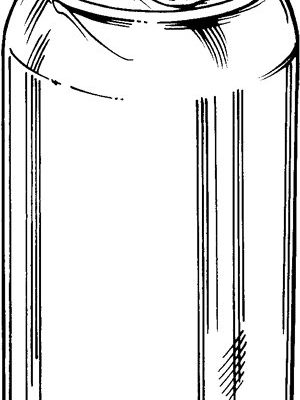
Now, you might be thinking about the possibility of a synthetic diet—a kind of fast food for hornworms. This thought has sparked interest among both hobbyists and researchers. Companies like **Reptilinks** and others have developed synthetic diets for various insects. But can these diets really replace natural food? Let’s dig into this intriguing question and explore the ins and outs of feeding hornworms synthetic diets.
What Are Hornworms?
Hornworms are the larvae of moths from the Sphingidae family. Typically, you’ll find them on tomato plants, but they don’t discriminate—they’ll munch on potatoes, peppers, and even tobacco. These little guys are known for their striking colors, usually a bright green with a forked “horn” at their rear end, which is where they get their name. You might notice them lurking on your garden plants, causing significant damage as they feast.
But here’s the thing: hornworms grow incredibly fast. In just a few weeks, they can reach up to 4.5 inches long! With such rapid growth, it’s essential to provide them with nutrient-rich food. The usual go-to for keeping hornworms happy is fresh leaves. However, as their popularity in the pet trade increases, many are asking if there’s a better way to feed these critters without always relying on plant matter.
Understanding Synthetic Diets
Synthetic diets for insects are formulated to provide a complete nutritional profile—much like a balanced meal plan for humans. These diets often come in powder form and can be mixed with water to create a gel or paste, which mimics the texture and moisture of fresh plant material. It’s fascinating how scientists and animal feed experts have developed these diets using various proteins, vitamins, and minerals.
You might wonder why someone would choose a synthetic diet for hornworms over fresh leaves. Well, there are a few key reasons:
- Nutrient Consistency: Synthetic diets are designed to deliver consistent nutrition with every meal.
- Convenience: Mixing a diet can be less labor-intensive than harvesting fresh leaves regularly.
- Reduced Waste: There’s often less spoilage, as synthetic diets have a longer shelf life.
However, as appealing as these advantages sound, the question remains: can hornworms actually thrive on these synthetic diets?
The Pros and Cons of Feeding Hornworms Synthetic Diets
When considering synthetic diets for hornworms, it’s essential to weigh the pros and cons. Let’s break this down.
**Pros:**
1. **Balanced Nutrition:** Many synthetic diets are formulated to provide all the essential nutrients hornworms need for healthy growth.
2. **Less Time-Consuming:** If you’re busy or don’t have access to fresh plant leaves, a synthetic option can save you precious time.
3. **Control Over Diet:** You can easily manage how much food your hornworms get and ensure they receive everything they need.
**Cons:**
1. **Natural Behavior:** Hornworms are naturally wired to eat leaves. Feeding them synthetic diets may not provide the same satisfaction or mimic their natural behaviors.
2. **Testing Needs:** Not all synthetic diets are created equal. It’s crucial to ensure the one you choose is appropriate for hornworms specifically.
3. **Potential Issues:** Some hornworms might not accept synthetic diets readily. They’re quite picky eaters!
So, while there are appealing aspects to synthetic diets, it’s essential to observe how your hornworms react to them before making any long-term changes.
Research and Studies on Synthetic Diets for Hornworms
There’s actually been some interesting research into the viability of synthetic diets for hornworms. Some studies suggest that hornworms can grow just as well on synthetic diets as they do on fresh leaves. Researchers have looked into the hormonal levels and growth rates of hornworms fed these diets, and the results have been promising.
However, there’s still a lot we don’t know. For instance, do hornworms that eat synthetic diets develop any differences in behavior compared to those that munch on fresh leaves? These are questions that researchers are still investigating.
If you’re considering this route, look for scientific studies or guidelines from reputable sources. **Reptilinks** often publishes research-backed insights on their products, which can help you make a more informed choice.
How to Prepare Synthetic Diets for Hornworms
If you decide to give synthetic diets a shot, here’s how you can prepare them. It’s relatively straightforward, but it’s key to follow the instructions carefully for the best results.
1. **Gather Your Materials:** You’ll need the synthetic diet powder, water, and a mixing bowl.
2. **Mix the Diet:** According to the package instructions, measure out the correct ratio of water to powder. Typically, it’s a simple mix—just combine until there are no lumps.
3. **Settle the Mixture:** Let the mixture sit for a few minutes. This allows it to thicken up and form a gel-like consistency.
4. **Serve:** You can either spoon it into a shallow dish for the hornworms or pipe it into their feeding area.
Once you’ve set it up, keep an eye on your hornworms. Are they munching on it? Do they seem satisfied? Those little observations will tell you a lot.
Comparing Synthetic Diets to Natural Diets
You might be torn between using synthetic diets and sticking with the traditional fresh leaves. Let’s compare the two a bit more.
– **Natural Diets:** Hornworms thrive on fresh leaves, which provide moisture and nutrients in their original form. Plus, they absolutely love the taste of fresh leaves! However, this option requires regular harvesting and may not be practical for everyone.
– **Synthetic Diets:** These offer convenience and a balanced diet without the need for constant harvesting. However, some hornworms might hesitate at first and need some time to adjust.
Ultimately, it comes down to your setup and preferences. If you’re raising hornworms for pets or research, it might be worth experimenting with both options and seeing what works best.
So, can hornworms be fed synthetic diets? The answer isn’t black and white. They can thrive on synthetic diets if formulated correctly, but it’s essential to consider their natural habits and preferences. Some hornworms may take to them easily, while others might be more hesitant.
Experimenting with synthetic diets can be a fun and educational journey. Just remember to pay attention to your hornworms’ behavior and growth. After all, you want to make sure they’re not only well-fed but happy, too! So whether you’re a hobbyist or just exploring a new feeding method, I hope you’ve gained some clarity on this intriguing topic. Happy feeding!

